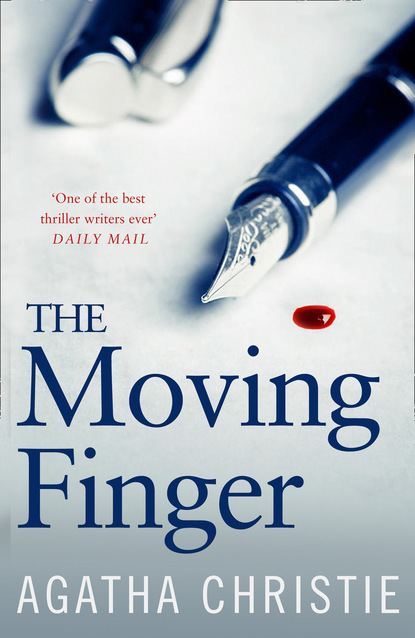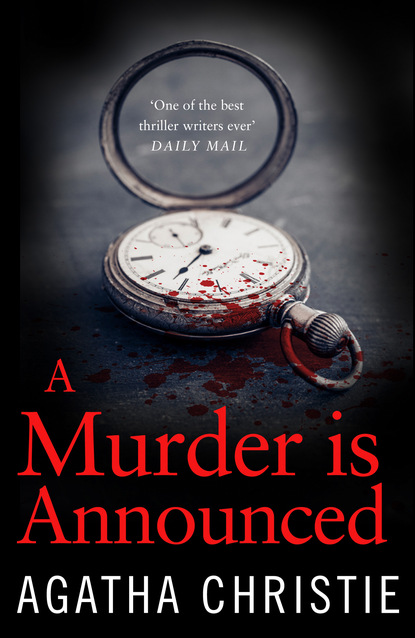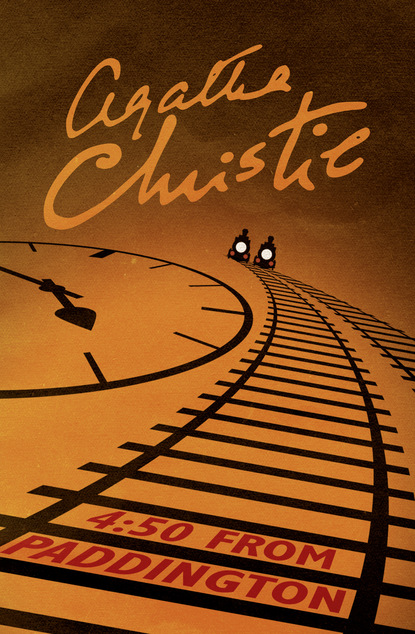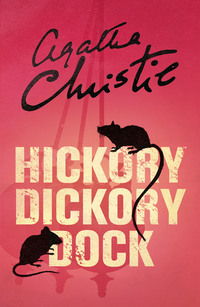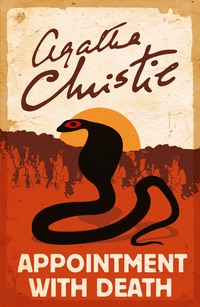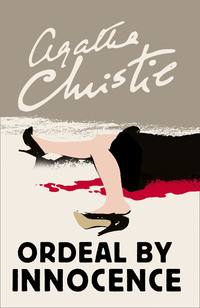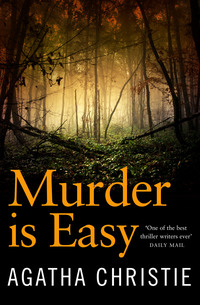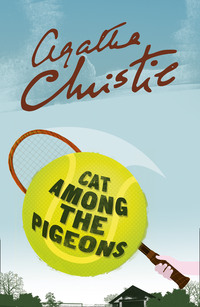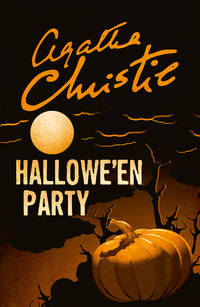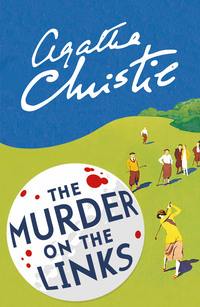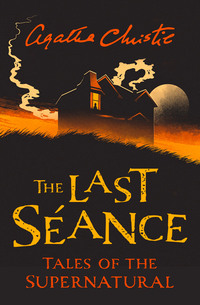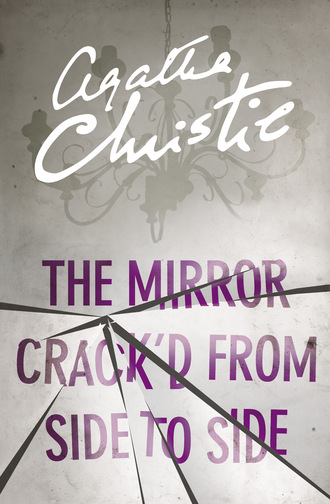
Полная версия
The Mirror Crack’d From Side to Side
She turned a corner into Walsingham Close and her spirits rose every moment.
The new world was the same as the old. The houses were different, the streets were called Closes, the clothes were different, the voices were different, but the human beings were the same as they always had been. And though using slightly different phraseology, the subjects of conversation were the same.
By dint of turning corners in her exploration, Miss Marple had rather lost her sense of direction and had arrived at the edge of the housing estate again. She was now in Carrisbrook Close, half of which was still ‘under construction’. At the first-floor window of a nearly finished house a young couple were standing. Their voices floated down as they discussed the amenities.
‘You must admit it’s a nice position, Harry.’
‘Other one was just as good.’
‘This one’s got two more rooms.’
‘And you’ve got to pay for them.’
‘Well, I like this one.’
‘You would!’
‘Ow, don’t be such a spoil-sport. You know what Mum said.’
‘Your Mum never stops saying.’
‘Don’t you say nothing against Mum. Where’d I have been without her? And she might have cut up nastier than she did. She could have taken you to court.’
‘Oh, come off it, Lily.’
‘It’s a good view of the hills. You can almost see—’ She leaned far out, twisting her body to the left. ‘You can almost see the reservoir—’
She leant farther still, not realizing that she was resting her weight on loose boards that had been laid across the sill. They slipped under the pressure of her body, sliding outwards, carrying her with them. She screamed, trying to regain her balance.
‘Harry—’
The young man stood motionless—a foot or two behind her. He took one step backwards—
Desperately, clawing at the wall, the girl righted herself. ‘Oo!’ She let out a frightened breath. ‘I near as nothing fell out. Why didn’t you get hold of me?’
‘It was all so quick. Anyway you’re all right.’
‘That’s all you know about it. I nearly went, I tell you. And look at the front of my jumper, it’s all mussed.’
Miss Marple went on a little way, then on impulse, she turned back.
Lily was outside in the road waiting for the young man to lock up the house.
Miss Marple went up to her and spoke rapidly in a low voice.
‘If I were you, my dear, I shouldn’t marry that young man. You want someone whom you can rely upon if you’re in danger. You must excuse me for saying this to you—but I feel you ought to be warned.’
She turned away and Lily stared after her.
‘Well, of all the—’
Her young man approached.
‘What was she saying to you, Lil?’
Lily opened her mouth—then shut it again.
‘Giving me the gipsy’s warning, if you want to know.’
She eyed him in a thoughtful manner.
Miss Marple in her anxiety to get away quickly, turned a corner, stumbled over some loose stones and fell.
A woman came running out of one of the houses.
‘Oh dear, what a nasty spill! I hope you haven’t hurt yourself?’
With almost excessive goodwill she put her arms round Miss Marple and tugged her to her feet.
‘No bones broken, I hope? There we are. I expect you feel rather shaken.’
Her voice was loud and friendly. She was a plump squarely built woman of about forty, brown hair just turning grey, blue eyes, and a big generous mouth that seemed to Miss Marple’s rather shaken gaze to be far too full of white shining teeth.
‘You’d better come inside and sit down and rest a bit. I’ll make you a cup of tea.’
Miss Marple thanked her. She allowed herself to be led through the blue-painted door and into a small room full of bright cretonne-covered chairs and sofas.
‘There you are,’ said her rescuer, establishing her on a cushioned arm-chair. ‘You sit quiet and I’ll put the kettle on.’
She hurried out of the room which seemed rather restfully quiet after her departure. Miss Marple took a deep breath. She was not really hurt, but the fall had shaken her. Falls at her age were not to be encouraged. With luck, however, she thought guiltily, Miss Knight need never know. She moved her arms and legs gingerly. Nothing broken. If she could only get home all right. Perhaps, after a cup of tea—
The cup of tea arrived almost as the thought came to her. Brought on a tray with four sweet biscuits on a little plate.
‘There you are.’ It was placed on a small table in front of her. ‘Shall I pour it out for you? Better have plenty of sugar.’
‘No sugar, thank you.’
‘You must have sugar. Shock, you know. I was abroad with ambulances during the war. Sugar’s wonderful for shock.’ She put four lumps in the cup and stirred vigorously. ‘Now you get that down, and you’ll feel as right as rain.’
Miss Marple accepted the dictum.
‘A kind woman,’ she thought. ‘She reminds me of someone—now who is it?’
‘You’ve been very kind to me,’ she said, smiling.
‘Oh, that’s nothing. The little ministering angel, that’s me. I love helping people.’ She looked out of the window as the latch of the outer gate clicked. ‘Here’s my husband home. Arthur—we’ve got a visitor.’
She went out into the hall and returned with Arthur who looked rather bewildered. He was a thin pale man, rather slow in speech.
‘This lady fell down—right outside our gate, so of course I brought her in.’
‘Your wife is very kind, Mr—’
‘Badcock’s the name.’
‘Mr Badcock, I’m afraid I’ve given her a lot of trouble.’
‘Oh, no trouble to Heather. Heather enjoys doing things for people.’ He looked at her curiously. ‘Were you on your way anywhere in particular?’
‘No, I was just taking a walk. I live in St Mary Mead, the house beyond the Vicarage. My name is Marple.’
‘Well, I never!’ exclaimed Heather. ‘So you’re Miss Marple. I’ve heard about you. You’re the one who does all the murders.’
‘Heather! What do you—’
‘Oh, you know what I mean. Not actually do murders—find out about them. That’s right, isn’t it?’
Miss Marple murmured modestly that she had been mixed up in murders once or twice.
‘I heard there have been murders here, in this village. They were talking about it the other night at the Bingo Club. There was one at Gossington Hall. I wouldn’t buy a place where there’d been a murder. I’d be sure it was haunted.’
‘The murder wasn’t committed in Gossington Hall. A dead body was brought there.’
‘Found in the library on the hearthrug, that’s what they said?’
Miss Marple nodded.
‘Did you ever? Perhaps they’re going to make a film of it. Perhaps that’s why Marina Gregg has bought Gossington Hall.’
‘Marina Gregg?’
‘Yes. She and her husband. I forget his name—he’s a producer, I think, or a director—Jason something. But Marina Gregg, she’s lovely, isn’t she? Of course she hasn’t been in so many pictures of late years—she was ill for a long time. But I still think there’s never anybody like her. Did you see her in Carmanella? And The Price of Love, and Mary of Scotland? She’s not so young any more, but she’ll always be a wonderful actress. I’ve always been a terrific fan of hers. When I was a teenager I used to dream about her. The big thrill of my life was when there was a big show in aid of the St John Ambulance in Bermuda, and Marina Gregg came to open it. I was mad with excitement, and then on the very day I went down with a temperature and the doctor said I couldn’t go. But I wasn’t going to be beaten. I didn’t actually feel too bad. So I got up and put a lot of make-up on my face and went along. I was introduced to her and she talked to me for quite three minutes and gave me her autograph. It was wonderful. I’ve never forgotten that day.’
Miss Marple stared at her.
‘I hope there were no—unfortunate after-effects?’ she said anxiously.
Heather Badcock laughed.
‘None at all. Never felt better. What I say is, if you want a thing you’ve got to take risks. I always do.’
She laughed again, a happy strident laugh.
Arthur Badcock said admiringly, ‘There’s never any holding Heather. She always gets away with things.’
‘Alison Wilde,’ murmured Miss Marple, with a nod of satisfaction.
‘Pardon?’ said Mr Badcock.
‘Nothing. Just someone I used to know.’
Heather looked at her inquiringly.
‘You reminded me of her, that is all.’
‘Did I? I hope she was nice.’
‘She was very nice indeed,’ said Miss Marple slowly. ‘Kind, healthy, full of life.’
‘But she had her faults, I suppose?’ laughed Heather. ‘I have.’
‘Well, Alison always saw her own point of view so clearly that she didn’t always see how things might appear to, or affect, other people.’
‘Like the time you took in that evacuated family from a condemned cottage and they went off with all our teaspoons,’ Arthur said.
‘But Arthur!—I couldn’t have turned them away. It wouldn’t have been kind.’
‘They were family spoons,’ said Mr Badcock sadly. ‘Georgian. Belonged to my mother’s grandmother.’
‘Oh, do forget those old spoons, Arthur. You do harp so.’
‘I’m not very good at forgetting, I’m afraid.’
Miss Marple looked at him thoughtfully.
‘What’s your friend doing now?’ asked Heather of Miss Marple with kindly interest.
Miss Marple paused a moment before answering.
‘Alison Wilde? Oh—she died.’
CHAPTER 3
‘I’m glad to be back,’ said Mrs Bantry. ‘Although, of course, I’ve had a wonderful time.’
Miss Marple nodded appreciatively, and accepted a cup of tea from her friend’s hand.
When her husband, Colonel Bantry, had died some years ago, Mrs Bantry had sold Gossington Hall and the considerable amount of land attached to it, retaining for herself what had been the East Lodge, a charming porticoed little building replete with inconvenience, where even a gardener had refused to live. Mrs Bantry had added to it the essentials of modern life, a built-on kitchen of the latest type, a new water supply from the main, electricity, and a bathroom. This had all cost her a great deal, but not nearly so much as an attempt to live at Gossington Hall would have done. She had also retained the essentials of privacy, about three quarters of an acre of garden nicely ringed with trees, so that, as she explained, ‘Whatever they do with Gossington I shan’t really see it or worry.’
For the last few years she had spent a good deal of the year travelling about, visiting children and grandchildren in various parts of the globe, and coming back from time to time to enjoy the privacies of her own home. Gossington Hall itself had changed hands once or twice. It had been run as a guest house, failed, and been bought by four people who had shared it as four roughly divided flats and subsequently quarrelled. Finally the Ministry of Health had bought it for some obscure purpose for which they eventually did not want it. The Ministry had now resold it—and it was this sale which the two friends were discussing.
‘I have heard rumours, of course,’ said Miss Marple.
‘Naturally,’ said Mrs Bantry. ‘It was even said that Charlie Chaplin and all his children were coming to live here. That would have been wonderful fun; unfortunately there isn’t a word of truth in it. No, it’s definitely Marina Gregg.’
‘How very lovely she was,’ said Miss Marple with a sigh. ‘I always remember those early films of hers. Bird of Passage with that handsome Joel Roberts. And the Mary, Queen of Scots film. And of course it was very sentimental, but I did enjoy Comin’ Thru the Rye. Oh dear, that was a long time ago.’
‘Yes,’ said Mrs Bantry. ‘She must be—what do you think? Forty-five? Fifty?’
Miss Marple thought nearer fifty.
‘Has she been in anything lately? Of course I don’t go very often to the cinema nowadays.’
‘Only small parts, I think,’ said Mrs Bantry. ‘She hasn’t been a star for quite a long time. She had that bad nervous breakdown. After one of her divorces.’
‘Such a lot of husbands they all have,’ said Miss Marple. ‘It must really be very tiring.’
‘It wouldn’t suit me,’ said Mrs Bantry. ‘After you’ve fallen in love with a man and married him and got used to his ways and settled down comfortably—to go and throw it all up and start again! It seems to me madness.’
‘I can’t presume to speak,’ said Miss Marple with a little spinsterish cough, ‘never having married. But it seems, you know, a pity.’
‘I suppose they can’t help it really,’ said Mrs Bantry vaguely. ‘With the kind of lives they have to live. So public, you know. I met her,’ she added. ‘Marina Gregg, I mean, when I was in California.’
‘What was she like?’ Miss Marple asked with interest.
‘Charming,’ said Mrs Bantry. ‘So natural and unspoiled.’ She added thoughtfully, ‘It’s like a kind of livery really.’
‘What is?’
‘Being unspoiled and natural. You learn how to do it, and then you have to go on being it all the time. Just think of the hell of it—never to be able to chuck something, and say, “Oh, for the Lord’s sake stop bothering me.” I dare say that in sheer self-defence you have to have drunken parties or orgies.’
‘She’s had five husbands, hasn’t she?’ Miss Marple asked.
‘At least. An early one that didn’t count, and then a foreign Prince or Count, and then another film star, Robert Truscott, wasn’t it? That was built up as a great romance. But it only lasted four years. And then Isidore Wright, the playwright. That was rather serious and quiet, and she had a baby—apparently she’d always longed to have a child—she’s even half-adopted a few strays—anyway this was the real thing. Very much built up. Motherhood with a capital M. And then, I believe, it was an imbecile, or queer or something—and it was after that, that she had this breakdown and started to take drugs and all that, and threw up her parts.’
‘You seem to know a lot about her,’ said Miss Marple.
‘Well, naturally,’ said Mrs Bantry. ‘When she bought Gossington I was interested. She married the present man about two years ago, and they say she’s quite all right again now. He’s a producer—or do I mean a director? I always get mixed. He was in love with her when they were quite young, but he didn’t amount to very much in those days. But now, I believe, he’s got quite famous. What’s his name now? Jason—Jason something—Jason Hudd, no, Rudd, that’s it. They’ve bought Gossington because it’s handy for’—she hesitated—‘Elstree?’ she hazarded.
Miss Marple shook her head.
‘I don’t think so,’ she said. ‘Elstree’s in North London.’
‘It’s the fairly new studios. Hellingforth—that’s it. Sounds so Finnish, I always think. About six miles from Market Basing. She’s going to do a film on Elizabeth of Austria, I believe.’
‘What a lot you know,’ said Miss Marple. ‘About the private lives of film stars. Did you learn it all in California?’
‘Not really,’ said Mrs Bantry. ‘Actually I get it from the extraordinary magazines I read at my hairdresser’s. Most of the stars I don’t even know by name, but as I said because Marina Gregg and her husband have bought Gossington, I was interested. Really the things those magazines say! I don’t suppose half of it is true—probably not a quarter. I don’t believe Marina Gregg is a nymphomaniac, I don’t think she drinks, pobably she doesn’t even take drugs, and quite likely she just went away to have a nice rest and didn’t have a nervous breakdown at all!—but it’s true that she is coming here to live.’
‘Next week, I heard,’ said Miss Marple.
‘As soon as that? I know she’s lending Gossington for a big fête on the twenty-third in aid of the St John Ambulance Corps. I suppose they’ve done a lot to the house?’
‘Practically everything,’ said Miss Marple. ‘Really it would have been much simpler, and probably cheaper, to have pulled it down and built a new house.’
‘Bathrooms, I suppose?’
‘Six new ones, I hear. And a palm court. And a pool. And what I believe they call picture windows, and they’ve knocked your husband’s study and the library into one to make a music room.’
‘Arthur will turn in his grave. You know how he hated music. Tone deaf, poor dear. His face, when some kind friend took us to the opera! He’ll probably come back and haunt them.’ She stopped and then said abruptly, ‘Does anyone ever hint that Gossington might be haunted?’
Miss Marple shook her head.
‘It isn’t,’ she said with certainty.
‘That wouldn’t prevent people saying it was,’ Mrs Bantry pointed out.
‘Nobody ever has said so.’ Miss Marple paused and then said, ‘People aren’t really foolish, you know. Not in villages.’
Mrs Bantry shot her a quick look. ‘You’ve always stuck to that, Jane. And I won’t say that you’re not right.’
She suddenly smiled.
‘Marina Gregg asked me, very sweetly and delicately, if I wouldn’t find it very painful to see my old home occupied by strangers. I assured her that it wouldn’t hurt me at all. I don’t think she quite believed me. But after all, as you know, Jane, Gossington wasn’t our home. We weren’t brought up there as children—that’s what really counts. It was just a house with a nice bit of shooting and fishing attached, that we bought when Arthur retired. We thought of it, I remember, as a house that would be nice and easy to run! How we can ever have thought that, I can’t imagine! All those staircases and passages. Only four servants! Only! Those were the days, ha ha!’ She added suddenly: ‘What’s all this about your falling down? That Knight woman ought not to let you go out by yourself.’
‘It wasn’t poor Miss Knight’s fault. I gave her a lot of shopping to do and then I—’
‘Deliberately gave her the slip? I see. Well, you shouldn’t do it, Jane. Not at your age.’
‘How did you hear about it?’
Mrs Bantry grinned.
‘You can’t keep any secrets in St Mary Mead. You’ve often told me so. Mrs Meavy told me.’
‘Mrs Meavy?’ Miss Marple looked at sea.
‘She comes in daily. She’s from the Development.’
‘Oh, the Development.’ The usual pause happened.
‘What were you doing in the Development?’ asked Mrs Bantry, curiously.
‘I just wanted to see it. To see what the people were like.’
‘And what did you think they were like?’
‘Just the same as everyone else. I don’t quite know if that was disappointing or reassuring.’
‘Disappointing, I should think.’
‘No. I think it’s reassuring. It makes you—well—recognize certain types—so that when anything occurs—one will understand quite well why and for what reason.’
‘Murder, do you mean?’
Miss Marple looked shocked.
‘I don’t know why you should assume that I think of murder all the time.’
‘Nonsense, Jane. Why don’t you come out boldly and call yourself a criminologist and have done with it?’
‘Because I am nothing of the sort,’ said Miss Marple with spirit. ‘It is simply that I have a certain knowledge of human nature—that is only natural after having lived in a small village all my life.’
‘You probably have something there,’ said Mrs Bantry thoughtfully, ‘though most people wouldn’t agree, of course. Your nephew Raymond always used to say this place was a complete backwater.’
‘Dear Raymond,’ said Miss Marple indulgently. She added: ‘He’s always been so kind. He’s paying for Miss Knight, you know.’
The thought of Miss Knight induced a new train of thought and she arose and said: ‘I’d better be going back now, I suppose.’
‘You didn’t walk all the way here, did you?’
‘Of course not. I came in Inch.’
This somewhat enigmatic pronouncement was received with complete understanding. In days very long past, Mr Inch had been the proprietor of two cabs, which met trains at the local station and which were also hired by the local ladies to take them ‘calling’, out to tea parties, and occasionally, with their daughters, to such frivolous entertainments as dances. In the fullness of time Inch, a cheery red-faced man of seventy odd, gave place to his son—known as ‘young Inch’ (he was then aged forty-five) though old Inch still continued to drive such elderly ladies as considered his son too young and irresponsible. To keep up with the times, young Inch abandoned horse vehicles for motor cars. He was not very good with machinery and in due course a certain Mr Bardwell took over from him. The name Inch persisted. Mr Bardwell in due course sold out to Mr Roberts, but in the telephone book Inch’s Taxi Service was still the official name, and the older ladies of the community continued to refer to their journeys as going somewhere ‘in Inch’, as though they were Jonah and Inch was a whale.
‘Dr Haydock called,’ said Miss Knight reproachfully. ‘I told him you’d gone to tea with Mrs Bantry. He said he’d call in again tomorrow.’
She helped Miss Marple off with her wraps.
‘And now, I expect, we’re tired out,’ she said accusingly.
‘You may be,’ said Miss Marple. ‘I am not.’
‘You come and sit cosy by the fire,’ said Miss Knight, as usual paying no attention. (‘You don’t need to take much notice of what the old dears say. I just humour them.’) ‘And how would we fancy a nice cup of Ovaltine? Or Horlicks for a change?’
Miss Marple thanked her and said she would like a small glass of dry sherry. Miss Knight looked disapproving.
‘I don’t know what the doctor would say to that, I’m sure,’ she said, when she returned with the glass.
‘We will make a point of asking him tomorrow morning,’ said Miss Marple.
On the following morning Miss Knight met Dr Haydock in the hall, and did some agitated whispering.
The elderly doctor came into the room rubbing his hands, for it was a chilly morning.
‘Here’s our doctor to see us,’ said Miss Knight gaily. ‘Can I take your gloves, Doctor?’
‘They’ll be all right here,’ said Haydock, casting them carelessly on a table. ‘Quite a nippy morning.’
‘A little glass of sherry perhaps?’ suggested Miss Marple.
‘I heard you were taking to drink. Well, you should never drink alone.’
The decanter and the glasses were already on a small table by Miss Marple. Miss Knight left the room.
Dr Haydock was a very old friend. He had semi-retired, but came to attend certain of his old patients.
‘I hear you’ve been falling about,’ he said as he finished his glass. ‘It won’t do, you know, not at your age. I’m warning you. And I hear you didn’t want to send for Sandford.’
Sandford was Haydock’s partner.
‘That Miss Knight of yours sent for him anyway—and she was quite right.’
‘I was only bruised and shaken a little. Dr Sandford said so. I could have waited quite well until you were back.’
‘Now look here, my dear. I can’t go on for ever. And Sandford, let me tell you, has better qualifications than I have. He’s a first class man.’
‘The young doctors are all the same,’ said Miss Marple. ‘They take your blood pressure, and whatever’s the matter with you, you get some kind of mass produced variety of new pills. Pink ones, yellow ones, brown ones. Medicine nowadays is just like a supermarket—all packaged up.’
‘Serve you right if I prescribed leeches, and black draught, and rubbed your chest with camphorated oil.’
‘I do that myself when I’ve got a cough,’ said Miss Marple with spirit, ‘and very comforting it is.’
‘We don’t like getting old, that’s what it is,’ said Haydock gently. ‘I hate it.’
‘You’re quite a young man compared to me,’ said Miss Marple. ‘And I don’t really mind getting old—not that in itself. It’s the lesser indignities.’
‘I think I know what you mean.’
‘Never being alone! The difficulty of getting out for a few minutes by oneself. And even my knitting—such a comfort that has always been, and I really am a good knitter. Now I drop stitches all the time—and quite often I don’t even know I’ve dropped them.’


